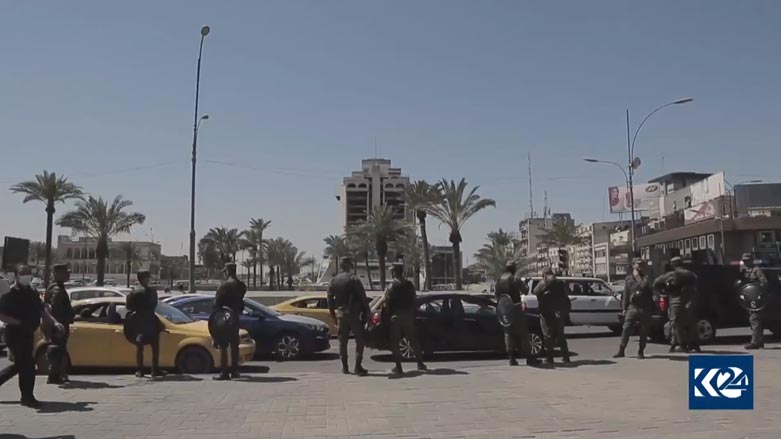'October activists' find refuge in Erbil from the dangers of Baghdad

ERBIL (Kurdistan 24) – Countless activists from Iraq’s October protests have recently sought refuge in the Kurdistan Region’s capital, fearing the threats of armed groups at home, particularly those linked to Iran.
Most of the activists from the 2019 demonstrations still receive death threats, not only in Baghdad but also in Iraq’s southern cities, the stronghold of the protests against the country’s ruling elite. Activists have played the role of the main driver of the demonstrations.
Dozens of activists have been gunned down by Iraqi security forces and armed groups, who have long accused the demonstrators of being backed by America and Israel.
Those who have sought safety in Erbil say that they cannot return to Baghdad, stating that they have lost friends and relatives to militias, and others remain missing, including their family members.
Although Prime Minister Mustafa al-Kadhimi’s government considers itself born from the demonstrations, they still fear the protests could ignite again, and authorities regularly deploy military vehicles in the streets of Baghdad.
Activist Mujtaba Abbas told Kurdistan 24 that he was shot by security forces during the protests.
Abbas added, "The militias have put my name on the wanted list, and it is not possible to return to my home."
He was kidnapped while speaking on a live broadcast from Baghdad’s Tahrir Square, and then imprisoned by Iraqi militias for three months before he was released under pressure and left for Erbil, fearing that he would be the next target for assassination.
Activist Maytham al-Mayahi told Kurdistan 24 in Erbil, "Although we are here, they do not leave us alone, they keep threatening us and want to bring us back to Baghdad and arrest us."
The slogans of the activists and the demonstrators were centered around demands that the government improve living conditions, provide basic services, and create job opportunities for an army of unemployed graduates in one of the richest cities in the world. The demonstrations may have largely stopped, but their demands have not been met.
Malik Abdoun, a writer and poet, said, "There is no law in Iraq, especially since al-Kadhimi has no authority, and they rejected [the candidate] Adnan al-Zarfi because he was robust and wouldn’t have leave room for the militias."
The Iraqi parliament previously set up a commission of inquiry into the threats of armed groups against protesters. Pictures of protest victims are still hanging in the streets of Baghdad and the southern provinces, most of them of young men who dreamed of a better life.
Iraqis are still living in deteriorating conditions years after the defeat of the Islamic State group, despite the country's vast oil wealth. The hand of reform did not extend to the ruined infrastructure, and jobs became scarce amid growing corruption.
Read More: Iraqi youth see little hope 18 years after Saddam's fall
Many protesters have said, in separate interviews with Kurdistan 24, that their demonstrations will not stop and that they will continue on this path until radical change is seen.
Editing by Joanne Stocker-Kelly